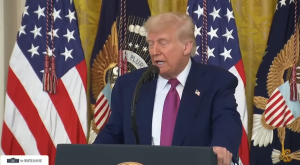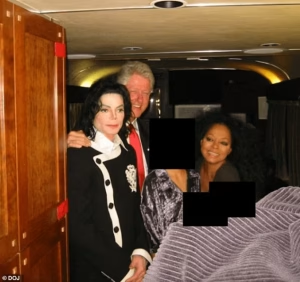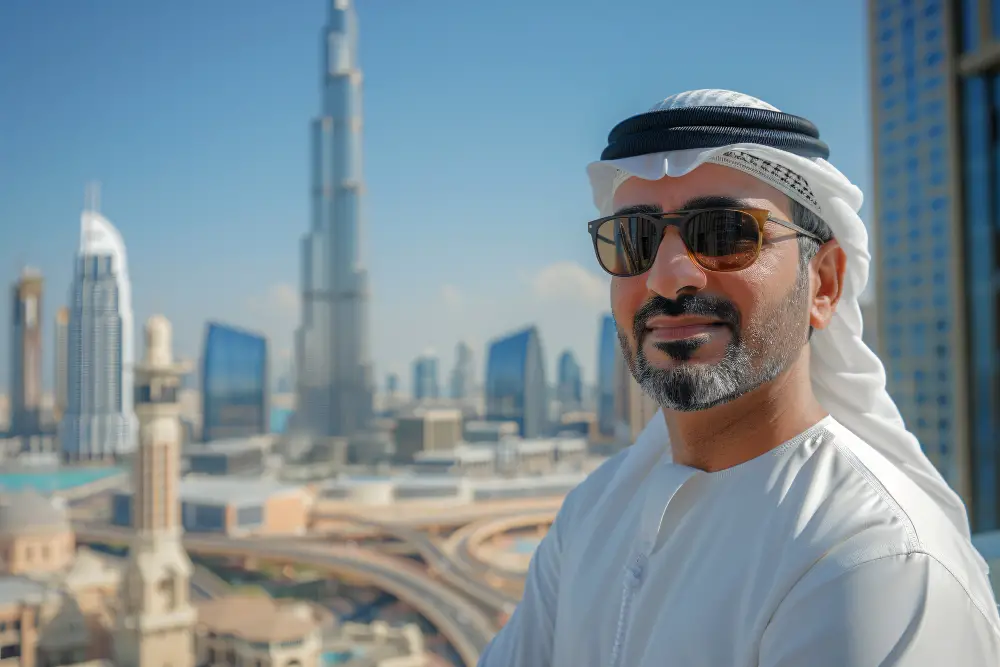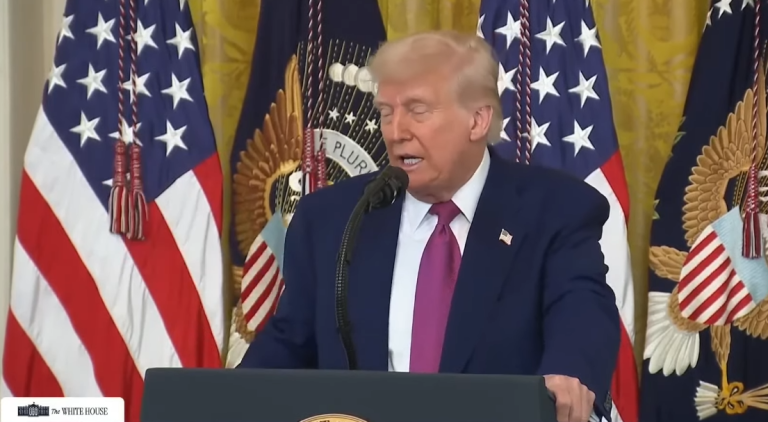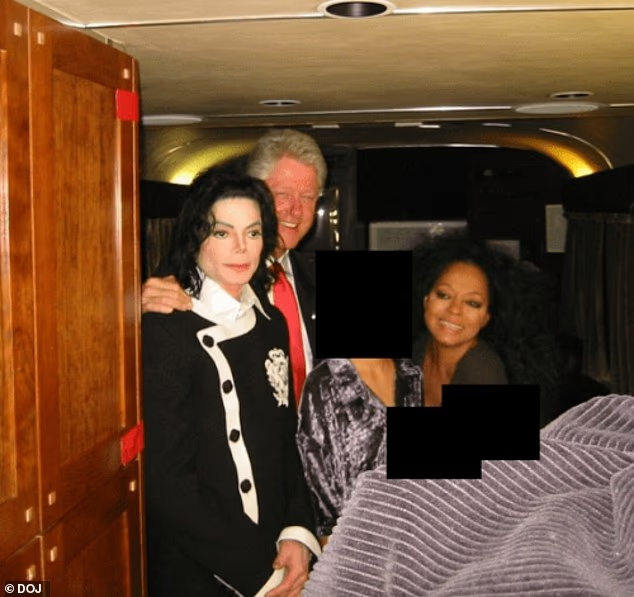When Prejudice Meets Wisdom: How One Woman’s Response Changed Everything
A powerful story about cultural understanding, human dignity, and the importance of treating everyone with respect
Chapter 1: The Golden Palace
A Night of Luxury and Status
The Golden Palace restaurant stood as a monument to luxury in the heart of Dubai’s financial district, where the world’s wealthy elite gathered to conduct business over plates of the finest cuisine. Crystal chandeliers cast prismatic light across marble floors, while the gentle sound of a traditional oud player filled the air with melodies that spoke of ancient deserts and timeless stories.
On this particular evening, the restaurant’s most exclusive private dining room hosted a gathering that would have made headlines in any financial publication. Oil executives, real estate magnates, technology entrepreneurs, and government officials from across the Middle East had convened to discuss ventures worth billions of dollars. At the center of this powerful assembly sat Sheikh Abdullah Al-Rashid, whose oil empire had generated a fortune estimated at forty-three billion dollars.
The sheikh commanded attention not just through his wealth, but through his presence. Dressed in pristine white robes with gold threading, he spoke with the confidence of someone who had never been told no, never been denied, and never been challenged. His guests hung on his every word, laughing at his jokes perhaps a bit too enthusiastically, agreeing with his observations perhaps a bit too quickly.
The restaurant’s staff moved like shadows around the powerful men, ensuring that crystal glasses never emptied and that every desire was anticipated before it could be voiced. The service standard at the Golden Palace demanded perfection, invisibility, and absolute discretion. Staff members were selected not just for their professional skills, but for their ability to blend into the background of conversations that could affect global oil prices or international political relationships.
Among the servers that evening was Layla Mahmoud, a young woman whose grace and professionalism had earned her a position serving the restaurant’s most important clientele. She moved through the dining room with quiet efficiency, her eyes downcast in the manner expected of service staff in such establishments. To the casual observer, she appeared to be exactly what she seemed: a dedicated server focused entirely on her professional duties.
The Hidden Story
What none of the powerful men at that table knew was that Layla Mahmoud carried within her a story that would have surprised and perhaps humbled them. Born in London to a Palestinian mother and a British father, she had grown up in a household where multiple languages flowed as naturally as water. Her adoptive father, Dr. Mahmoud Hassan, was a renowned scholar of Middle Eastern studies at Cambridge University, whose expertise in Arabic literature and Islamic history had made him a respected figure in academic circles worldwide.
From childhood, Layla had been immersed in the beauty and complexity of Arabic language and culture. She had learned classical Arabic alongside the modern dialects, studied the poetry of pre-Islamic times, memorized passages from the Quran for their literary beauty rather than religious obligation, and developed a deep appreciation for the philosophical traditions that had emerged from the Arab world over centuries.
Her father had taught her that language was more than communication; it was a window into the soul of a culture. He had shown her how Arabic poetry could capture emotions that English struggled to express, how the formal structure of classical Arabic reflected the sophisticated thinking of ancient scholars, and how the various dialects revealed the rich diversity of the Arab world.
But life had taken an unexpected turn two years earlier. Dr. Hassan had died suddenly of a heart attack, leaving behind a modest professor’s pension that proved insufficient when Layla’s mother was diagnosed with early-onset Alzheimer’s disease. The cost of memory care in London had forced Layla to make a decision that broke her heart: she moved to Dubai, where the higher wages for service industry workers could support both her own survival and her mother’s medical needs.
Every paycheck was carefully budgeted. Rent for her small studio apartment consumed forty percent of her income. Her mother’s care facility fees took another forty percent. The remaining twenty percent covered food, transportation, and the small luxuries that made life bearable: books from the used bookstore, occasional phone calls home, and the Arabic coffee she brewed in her apartment while reading poetry that reminded her of her father’s lessons.
Working double shifts at the Golden Palace, Layla had learned to navigate the complex social dynamics of serving the ultra-wealthy. She had developed a professional mask that concealed her education, her pain, and her dreams. The wealthy clientele preferred their servers to be invisible, uncomplicated, and easily dismissed. It was easier to tip generously and forget the human being who had served them than to acknowledge the complex lives and circumstances that had brought someone to carry their plates and pour their wine.
The Evening’s Dynamics
As the evening progressed, the conversation at the sheikh’s table grew more animated and more exclusive. The men spoke in Arabic, assuming that none of the restaurant staff could understand their increasingly personal and sometimes crude observations about business rivals, political figures, and the service staff themselves.
Layla continued her work with professional detachment, even as she understood every word being spoken around her. She had learned early in her time at the Golden Palace that revealing her linguistic abilities would only complicate her employment. Wealthy clients preferred to believe that their private conversations remained private, even when conducted in the presence of staff members.
The discussion ranged from oil prices and production quotas to personal gossip about marriages, divorces, and business betrayals within their social circle. Some of the comments about absent colleagues were merely unflattering; others bordered on character assassination delivered with the casual cruelty that extreme wealth sometimes enables.
But it was when the conversation turned to the restaurant staff that the tone became particularly unpleasant. The men began making observations about the servers’ appearances, speculating about their personal lives, and expressing attitudes about service workers that revealed an ugly side of entitled wealth.
Sheikh Abdullah, perhaps emboldened by the wine and the appreciative laughter of his guests, began to hold forth on his theories about the proper relationship between employers and employees, between the wealthy and those who served them. His words revealed a worldview in which human dignity was a luxury available only to those who could afford it, and respect was a commodity to be purchased rather than a right to be recognized.
As Layla moved around the table, refilling water glasses and replacing plates, she maintained her professional composure even as she absorbed increasingly offensive commentary. She had endured similar situations before; the ultra-wealthy often seemed to believe that their money insulated them from the normal rules of human decency.
But when Sheikh Abdullah’s attention focused directly on her, the evening took a turn that would surprise everyone present.
Chapter 2: The Moment of Truth
Crossing the Line
Sheikh Abdullah had noticed something about Layla that intrigued and then irritated him. Unlike the other servers, who maintained nervous smiles and eager-to-please attitudes, she moved with a quiet dignity that suggested an inner strength he found annoying. Her posture was too straight, her gaze too direct when she looked at him, her demeanor too composed for someone whose job was to serve his every whim.
Perhaps it was the wine, or perhaps it was the encouraging laughter of his guests, but the sheikh decided to test this young woman’s composure. He had built his fortune partly on his ability to read people, to identify their weaknesses and exploit them when necessary. He sensed that this server harbored some kind of pride that needed to be broken down.
As Layla approached his chair to pour coffee from an ornate silver pot, the sheikh began speaking in Arabic, his voice loud enough for the entire table to hear. His words were chosen deliberately to humiliate and diminish, delivered with the casual cruelty of someone who had never faced consequences for his behavior.
“Look at this Western waitress,” he said in classical Arabic, his tone dripping with contempt. “She carries herself as if she were worthy of sitting at this table rather than serving it. Such arrogance from someone whose hands are fit only for washing dishes and cleaning floors.”
His guests chuckled appreciatively, some adding their own observations about the presumptuous attitude of modern service workers who forgot their proper place in the social hierarchy. The conversation became a group exercise in establishing superiority over someone they assumed could not understand their words.
“Her kind thinks that working in an expensive restaurant makes them sophisticated,” continued another guest. “But underneath the uniform, she is still nothing more than a servant, grateful for the coins we leave on the table.”
The sheikh warmed to his theme, encouraged by the laughter around him. “Western women have no understanding of proper respect. They lack the grace and humility that come naturally to women from our culture. This one probably thinks her beauty entitles her to more than she deserves.”
Layla continued pouring coffee, her hands steady despite the growing heat of anger in her chest. She had faced discrimination before, both subtle and overt, but rarely had she encountered such calculated cruelty delivered with such casual confidence. The men were performing their superiority for each other, using her as a prop in their display of wealth and power.
“I wonder what tragic circumstances brought her to serve coffee to her betters,” the sheikh mused aloud, his voice carrying the false sympathy that made his words even more insulting. “Perhaps she will learn humility through honest work, though I doubt Western women are capable of true modesty.”
The Internal Struggle
As the Arabic insults continued to flow around her, Layla faced a moment of profound decision. Every instinct told her to maintain her professional mask, to continue serving in silence, and to preserve the employment that paid for her mother’s care. She had endured worse treatment in other situations, and she knew that revealing her linguistic abilities would almost certainly result in her dismissal.
But something in the sheikh’s tone, in the cruel pleasure he took from what he believed was her ignorance, pushed her past the point of endurance. This was not merely personal insult; it was an assault on her dignity as a human being, delivered by someone who believed his wealth gave him the right to dehumanize anyone he considered beneath his station.
Her father’s voice echoed in her memory, teaching her about the great tradition of Arabic wisdom literature, about the poets and philosophers who had elevated human dignity and mutual respect as the highest virtues. The beautiful language that had given her so much joy and intellectual fulfillment was being twisted into an instrument of cruelty and humiliation.
She thought about her mother, alone in the care facility in London, depending entirely on the money Layla sent home each month. She thought about the months of careful budgeting, the sacrifices she had made, the dreams she had deferred to meet her family obligations. Could she risk all of that for a moment of personal satisfaction?
But she also thought about her father’s teachings about courage and moral responsibility. He had often told her that educated privilege came with obligations, that those who had been blessed with knowledge and understanding had a duty to speak truth to power when circumstances demanded it.
As the laughter continued around the table and the insults became more elaborate and cruel, Layla made her choice.
The Response That Changed Everything
Setting down the silver coffee pot with careful precision, Layla straightened to her full height and looked directly at Sheikh Abdullah. Her voice, when she spoke, was clear and strong, carrying the authority of someone who had mastered not just the language but the cultural depths from which it emerged.
“Man yuhinu imra’a ala ta’amihi, yuhinu sharafahu qabl duyufihi,” she said, her pronunciation flawless, her tone carrying the weight of ancient wisdom.
The words hung in the air like a physical presence. The laughter died instantly, replaced by a silence so complete that the distant sound of traffic from the street below seemed intrusive. Every person at the table stared at Layla, their expressions shifting from surprise to shock to something approaching fear.
For those who understood the full implications of her statement, the moment was electric with possibility and danger. She had not merely spoken Arabic; she had quoted from the tradition of classical Arabic wisdom literature, demonstrating not just linguistic ability but deep cultural knowledge.
The sheikh’s face went through a series of transformations: confusion, recognition, anger, and finally something that might have been shame. He was a man accustomed to controlling every situation, to having the last word in every conversation, to being the most knowledgeable person in every room. This young woman, whom he had dismissed as ignorant and insignificant, had just demonstrated that she possessed not only his language but a deeper understanding of his cultural values than he had displayed.
Her words carried multiple layers of meaning that everyone at the table understood. In the most literal sense, she had said, “Whoever humiliates a woman at his table humiliates his own honor before his guests.” But the cultural context made the rebuke even more powerful. She had invoked the traditional Arab values of hospitality, respect for women, and personal honor that the sheikh claimed to represent but had just violated.
The Silence That Spoke Volumes
The remainder of the evening passed in a tension-filled quiet that spoke louder than any argument could have. The animated conversation about business deals and personal gossip died completely. The guests picked at their food without appetite, occasionally glancing at Layla as she continued her duties with the same professional composure she had maintained throughout the evening.
Sheikh Abdullah, for his part, seemed lost in thought. The confident arrogance that had characterized his earlier behavior was replaced by an introspection that his guests had never witnessed. He stared at his coffee cup as if it might contain answers to questions he was just beginning to formulate.
The other men at the table were equally uncomfortable, but for different reasons. They had participated in the sheikh’s cruel game, adding their own insults and laughing at his wit. Now they realized that every word had been understood, every laugh had been heard and evaluated by someone who possessed the cultural knowledge to judge their behavior by the very standards they claimed to uphold.
For Layla, the remaining hour of her shift passed in a strange state of suspension. She had crossed a line from which there could be no return, and she was not yet sure whether she had acted with courage or foolishness. The immediate satisfaction of standing up for herself was tempered by the practical reality that she might have just destroyed the employment that supported her mother’s care.
But something had shifted in the room’s dynamics. The other staff members sensed that something significant had occurred, though they could not identify exactly what had changed. The restaurant’s manager, observing from a distance, noticed the unusual quiet at the VIP table but attributed it to the serious nature of their business discussions.
As the evening drew to a close, the guests began to make their departures with less of the boisterous camaraderie that had marked their arrival. Handshakes were exchanged with professional courtesy rather than genuine warmth, and the usual promises to continue their conversations over future dinners were notably absent.
Sheikh Abdullah remained seated long after his guests had left, staring thoughtfully at the table where Layla was clearing the remaining dishes and glasses. His usual entourage of assistants and bodyguards waited patiently nearby, accustomed to their employer’s occasional moments of contemplation but surprised by the duration of this particular reverie.
Chapter 3: Recognition and Transformation
The Unexpected Gesture
As Layla prepared to clear the table completely and end her shift, she noticed that Sheikh Abdullah had left an envelope beside his coffee cup. When she opened it, she found not just a tip, but an amount of money that represented nearly three months of her salary. The gesture was unprecedented in her experience, both in its generosity and in its timing.
But even more surprising was what happened next. Instead of leaving with his usual entourage, the sheikh stood up and approached her directly. His bodyguards tensed, uncertain about this deviation from normal protocol, but he waved them back with a gesture that indicated he wished to speak privately.
“Forgive me,” he said quietly, his voice carrying none of the arrogance that had characterized his earlier behavior. The Arabic words were spoken with genuine humility, a tone that his employees and associates would not have recognized. “In my luxury, I forgot my humanity.”
Layla looked at him carefully, trying to assess whether this apparent remorse was genuine or merely another performance designed to restore his image. She had learned through hard experience that wealthy people often apologized when caught in bad behavior, but that such apologies rarely reflected genuine change in attitude or understanding.
“How is it that you speak Arabic so perfectly?” he continued, his curiosity now genuinely respectful rather than condescending. “Your accent suggests formal education, not casual learning.”
For a moment, Layla considered giving him a brief, polite answer that would allow both of them to conclude the interaction with dignity intact. But something in his tone suggested that he was prepared to listen to a real answer, not just waiting for his turn to speak again.
The Story Revealed
“My adoptive father was Dr. Mahmoud Hassan,” Layla began, watching the sheikh’s face for recognition. “He was a scholar of Middle Eastern studies at Cambridge University, specializing in classical Arabic literature and Islamic philosophy.”
The sheikh’s expression showed immediate recognition. Dr. Hassan’s scholarship was well-known and respected throughout the academic and cultural institutions of the Middle East. His translations of classical Arabic poetry had been praised for their accuracy and literary sensitivity, and his commentaries on Islamic philosophical texts were considered authoritative by scholars worldwide.
“Dr. Hassan was your father?” The sheikh’s voice carried genuine surprise and something that might have been shame. “I have his translation of Al-Mutanabbi on my bookshelf. His work on the philosophical contributions of Al-Farabi changed how I understood our intellectual heritage.”
Layla nodded, feeling the familiar mixture of pride and loss that always accompanied discussions of her father’s legacy. “He raised me to understand that language is more than communication. He taught me that Arabic is a window into centuries of wisdom, poetry, and philosophical inquiry. He believed that understanding a culture’s language was the first step toward understanding its soul.”
The sheikh stood quietly for a moment, processing this information and its implications for his earlier behavior. He was beginning to understand that he had not merely insulted a random service worker, but had humiliated the daughter of a scholar he genuinely respected, using the very cultural traditions that her father had spent his life studying and preserving.
“What brought you here?” he asked, his tone now carrying genuine concern rather than idle curiosity. “Surely someone with your education and background has other options than serving coffee to…” He paused, perhaps about to say “people like me,” but leaving the thought incomplete.
Layla explained about her father’s death, her mother’s illness, the financial pressures that had forced her to leave London and seek higher-paying work in Dubai. She spoke matter-of-factly about the economic realities that had shaped her recent choices, without self-pity but also without minimizing the sacrifices involved.
As she spoke, the sheikh began to understand the full scope of his earlier cruelty. This was not simply a case of mistaken assumptions about someone’s background; it was a systematic failure to recognize the humanity and dignity of someone whose circumstances had placed her in a service position.
An Unexpected Proposition
When Layla finished explaining her situation, the sheikh stood quietly for several moments, apparently deep in thought. When he finally spoke, his words surprised her as much as her Arabic response had surprised him earlier that evening.
“Such talent should not be wasted carrying trays,” he said. “I have need of someone who can navigate between cultures, who understands both the Western business environment and the deeper currents of Arab culture. Would you consider working as my cultural liaison and translator?”
Layla stared at him, uncertain whether this offer was genuine or simply an elaborate gesture designed to assuage his guilt over the evening’s behavior. The position he was describing would represent not just a significant increase in income, but a return to the kind of intellectual work that her education had prepared her for.
“What would such a position involve?” she asked carefully.
“I am expanding my business relationships with Western companies,” the sheikh explained. “Too often, cultural misunderstandings create barriers that cost both sides opportunities for profitable cooperation. I need someone who can help bridge those gaps, who can help me understand not just what Western business people are saying, but what they mean by it.”
He paused, looking directly at her. “More importantly, I need someone who can help me avoid the kind of behavior I displayed tonight. Wealth and power can insulate a person from feedback about their impact on others. Tonight you showed me something about myself that I did not want to see but needed to understand.”
The offer was genuine, Layla realized. More than that, it represented an acknowledgment not just of her linguistic abilities, but of her moral authority to speak truth to power. The sheikh was offering her a position that would allow her to use her father’s teachings not just as personal knowledge, but as professional tools for building better understanding between cultures.
Chapter 4: New Beginnings and Deeper Understanding
The Transition
Within two weeks, Layla’s life had transformed completely. The modest studio apartment gave way to a comfortable flat in one of Dubai’s better neighborhoods. The carefully budgeted meals were replaced by the freedom to eat well without calculating every dirham. Most importantly, the constant anxiety about her mother’s care costs was eliminated by a salary that not only covered current expenses but allowed her to arrange for upgraded treatment.
But the most significant change was in the nature of her work itself. Instead of serving others while remaining invisible, she found herself at the center of important business negotiations, cultural exchanges, and diplomatic conversations. Her linguistic skills, which had been hidden assets in her previous employment, became the foundation of her professional identity.
The sheikh, whose real name she learned was Abdullah Al-Rashid, proved to be a complex and intellectually curious employer. His behavior at the restaurant had revealed his capacity for cruelty and arrogance, but his subsequent actions demonstrated an equally strong capacity for growth and self-reflection. He was genuinely committed to understanding his own cultural blind spots and addressing the ways that his wealth and power had insulated him from feedback about his impact on others.
Her first major assignment involved facilitating negotiations between Sheikh Abdullah’s oil company and a consortium of European renewable energy companies. The parties were exploring joint ventures that would combine Middle Eastern capital with Western technology to develop solar and wind energy projects across the region.
The negotiations revealed exactly the kind of cultural misunderstandings that had prompted Sheikh Abdullah to create Layla’s position. The European executives assumed that their Arab counterparts shared Western attitudes about time, decision-making processes, and relationship-building. The Arab businessmen were frustrated by what they perceived as European impatience with proper social protocols and relationship development.
Cultural Bridge-Building
Layla found herself serving as more than just a translator of languages; she became a translator of cultures. She helped the European executives understand that what they perceived as inefficient socializing was actually a crucial process of establishing trust and mutual respect that would make implementation of any agreements much smoother.
Similarly, she helped the Arab business leaders understand that Western concerns about detailed timelines and measurable benchmarks reflected not distrust but different approaches to risk management and accountability that were built into their corporate structures.
The success of these negotiations established Layla’s reputation within Sheikh Abdullah’s organization as someone who could bridge cultural gaps that had previously seemed insurmountable. Word of her abilities spread through Dubai’s business community, and she began receiving requests to facilitate other cross-cultural business relationships.
But perhaps more importantly, her presence began to influence Sheikh Abdullah’s broader approach to business and personal relationships. Having someone on his staff who could speak truth to power, who had the cultural knowledge to call out behavior that violated the values he claimed to uphold, created a form of accountability that his wealth had previously allowed him to avoid.
Expanding Influence
Six months into her new position, Layla found herself playing increasingly important roles in Sheikh Abdullah’s various business interests. She was not just translating languages and cultures, but helping to shape business strategies that took cultural considerations into account from the beginning rather than treating them as obstacles to overcome.
One particularly significant project involved developing a series of educational scholarships for young people from across the Middle East to study at Western universities, with the goal of creating a new generation of professionals who could navigate between cultures with the ease that Sheikh Abdullah’s previous educational and business experiences had not provided him.
The scholarship program was designed with careful attention to cultural sensitivity and mutual respect. Rather than simply sending Arab students to learn Western approaches, the program included components that would help Western universities better understand and appreciate the intellectual traditions and cultural values that scholarship recipients would bring with them.
Layla’s role in developing this program drew on all aspects of her background: her father’s academic expertise, her own experience navigating between cultures, and her hard-earned understanding of the challenges facing people who must work within systems that do not always recognize their full humanity and potential.
The program’s announcement generated significant positive publicity for Sheikh Abdullah’s organizations, but more importantly, it began to change how he was perceived within both Arab and Western business communities. Instead of being seen primarily as a wealthy oil magnate, he began to be recognized as someone who was serious about building bridges between cultures and creating opportunities for mutual understanding.
Personal Growth and Recognition
As her professional responsibilities expanded, Layla also found herself growing personally in ways she had not expected. The financial security of her new position allowed her to pursue interests that had been deferred during her years of economic struggle. She began writing articles about cross-cultural business practices, drawing on her experiences to help others navigate similar challenges.
Her writing caught the attention of academic journals and business publications, leading to invitations to speak at conferences about international business and cultural understanding. The young woman who had been invisible while serving coffee was becoming a recognized voice in discussions about globalization and cultural sensitivity.
Sheikh Abdullah actively encouraged these external activities, understanding that Layla’s growing reputation enhanced his organization’s credibility and effectiveness. But their professional relationship had also evolved into something approaching genuine friendship, based on mutual respect and shared commitment to building better understanding between cultures.
The transformation was evident in small daily interactions as well as major business negotiations. Sheikh Abdullah began asking for Layla’s perspective on decisions that went well beyond her formal job description, valuing her insights not just about language and culture but about leadership, ethics, and social responsibility.
His behavior toward other employees also changed significantly. The casual cruelty and dismissive attitudes that had characterized his treatment of service workers were replaced by genuine efforts to treat everyone with dignity and respect. When he slipped into old patterns, Layla’s presence served as a gentle but effective reminder of the values he was trying to embody.
Chapter 5: Legacy and Lasting Impact
Ripple Effects
The changes in Sheikh Abdullah’s approach to business and personal relationships began to influence his broader network of associates and business partners. The man who had once been known for his arrogance and casual cruelty was becoming recognized for his cultural sensitivity and commitment to ethical business practices.
This transformation had practical business benefits as well as moral ones. Companies and organizations that had previously been reluctant to work with Sheikh Abdullah due to concerns about his reputation began to reconsider their positions. The presence of someone like Layla on his staff served as a signal that his organization was serious about cultural sensitivity and ethical behavior.
International business partnerships that had previously been difficult to negotiate became more straightforward when potential partners recognized that Sheikh Abdullah had invested in genuine cross-cultural understanding rather than simply expecting others to accommodate his cultural preferences.
The scholarship program that Layla had helped develop became a model for other wealthy individuals and organizations seeking to build bridges between cultures. The program’s emphasis on mutual learning and respect, rather than one-way cultural transmission, inspired similar initiatives throughout the Middle East and beyond.
More than a hundred young people had benefited from the program within its first three years, creating a network of professionals who possessed the cultural fluency and mutual respect that had been so lacking in Sheikh Abdullah’s original approach to international business.
Personal Fulfillment
For Layla, the transformation from invisible service worker to respected cultural liaison represented more than just career advancement; it was a vindication of her father’s teachings about the power of education, cultural understanding, and moral courage to create positive change in the world.
She was able to bring her mother to Dubai for visits, showing her the life she had built and the ways she was using her father’s lessons in her professional work. These visits became precious opportunities to share stories about Dr. Hassan’s legacy and the continuing influence of his scholarship on contemporary cross-cultural understanding.
The financial security of her position allowed Layla to establish a small foundation dedicated to supporting the children of deceased scholars who were struggling with economic hardship. The foundation provided educational scholarships and support services that helped young people pursue academic goals despite difficult family circumstances.
Her own writing and speaking career continued to flourish, with several books about cross-cultural communication and business practices that drew on her unique experiences and perspectives. These publications helped establish her as an independent voice in discussions about globalization and cultural sensitivity, separate from her association with Sheikh Abdullah’s organization.
But perhaps most importantly, Layla had found a way to honor her father’s memory by using his teachings to create positive change in the world. The young woman who had been forced to abandon her academic dreams had found a way to pursue them in a different context, using her linguistic and cultural knowledge to build bridges between communities that had previously been separated by misunderstanding and mistrust.
Ongoing Challenges and Growth
The relationship between Layla and Sheikh Abdullah continued to evolve as both individuals grew in their understanding of themselves and their responsibilities to others. While the sheikh had made significant progress in addressing his previous attitudes and behaviors, the process of personal growth was ongoing and sometimes difficult.
Layla learned to navigate the complexities of speaking truth to power while maintaining professional relationships that were crucial to her ability to create positive change. She developed skills in diplomatic honesty that allowed her to address problems and concerns without destroying the trust and cooperation that made her work possible.
The success of their professional partnership led to expanded responsibilities and new challenges. Sheikh Abdullah’s business interests were growing more international and more complex, requiring increasingly sophisticated approaches to cultural sensitivity and cross-cultural communication.
New projects included renewable energy developments in Africa, technology partnerships with Asian companies, and educational initiatives that spanned multiple continents. Each new venture required Layla to expand her own cultural knowledge and develop new approaches to building understanding between different communities and business cultures.
The work was demanding and sometimes frustrating, but it was also deeply fulfilling in ways that her previous employment had never been. She was using her education and talents to create positive change in the world, building bridges between communities that had previously been separated by misunderstanding and mistrust.
The Continuing Journey
Years after that transformative evening at the Golden Palace restaurant, both Layla and Sheikh Abdullah continued to reflect on the lessons they had learned from their initial encounter. The moment had revealed the capacity for both cruelty and growth that exists within all human beings, and the power of moral courage to create opportunities for positive change.
For Sheikh Abdullah, the experience had provided crucial insight into the ways that wealth and power can insulate individuals from feedback about their impact on others. He had learned that true leadership required not just the ability to command resources and make decisions, but the wisdom to listen to voices that might challenge his assumptions and behaviors.
The cultural liaison position he had created for Layla had evolved into a broader organizational commitment to ethical business practices and cultural sensitivity that influenced all aspects of his various enterprises. The changes were not merely cosmetic but reflected fundamental shifts in values and priorities that continued to guide business decisions and strategic planning.
For Layla, the journey from invisible service worker to respected cultural ambassador had validated her father’s teachings about the power of education and moral courage to create positive change. She had learned that opportunities for meaningful work and personal fulfillment could emerge from the most unexpected circumstances, but only for those who were prepared to recognize and seize them.
The evening that had begun with cruelty and humiliation had ultimately become a catalyst for growth, understanding, and positive change that extended far beyond the individuals directly involved. It had demonstrated that the choice between dignity and degradation, between understanding and prejudice, between growth and stagnation, is always available to those with the courage to make it.
The story of the sheikh and the waitress became a reminder that human dignity transcends economic circumstances, that cultural understanding requires genuine effort and humility, and that the most transformative conversations can happen in the most unexpected moments between the most unlikely people.

James Jenkins is a celebrated Pulitzer Prize-winning author whose work has reshaped the way readers think about social justice and human rights in America. Raised in Atlanta, Georgia, James grew up in a community that instilled in him both resilience and a strong sense of responsibility toward others. After studying political science and creative writing at Howard University, he worked as a journalist covering civil rights issues before dedicating himself fully to fiction. His novels are known for their sharp, empathetic portraits of marginalized communities and for weaving personal stories with broader political realities. Jenkins’s breakout novel, Shadows of Freedom, won national acclaim for its unflinching look at systemic inequality, while his more recent works explore themes of identity, resilience, and the fight for dignity in the face of oppression. Beyond his novels, James is an active public speaker, lecturing at universities and participating in nonprofit initiatives that support literacy and community empowerment. He believes that storytelling is a way to preserve history and inspire change. When not writing, James enjoys jazz music, mentoring young writers, and traveling with his family to explore cultures and stories around the world.
